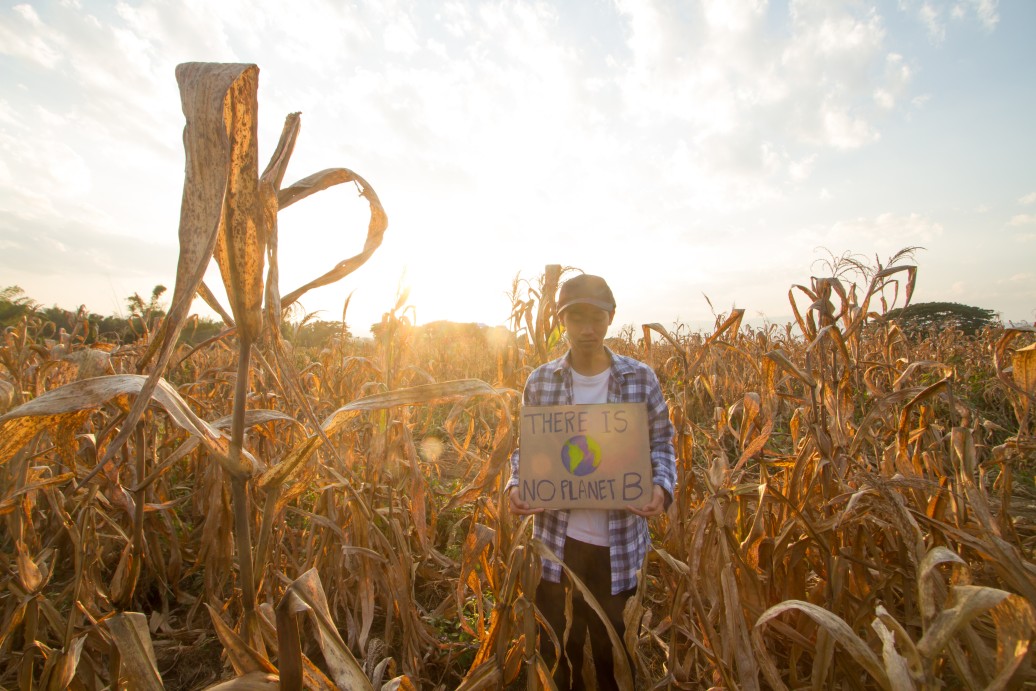
Heavy Rain, Flooding, and Chance of Severe Weather Staring Down the Southern U.S.
January 22, 2024
Posted: November 20, 2021 2:31 am





There is no doubt that the issue of climate change affects every living being on earth. The agricultural industry is growing increasingly worried that young farmers getting started in this trade are at an especially heightened risk of the dangers of global warming.
According to the US Department of Agriculture’s (USDA) Agricultural Resource Management Survey, there are approximately 340,000 American farms. Of this number, about 17% have been operating for less than 10 years. In another survey by the National Young Farmers Coalition (NYFC), data demonstrates that about two-thirds of these young farmers believe that they are already dealing with climate change in their work.
These farmers just getting started in the industry express that it is difficult to isolate one or two single events that cause issues. Instead, it is a confluence of events related to climate change that makes it more challenging to be profitable in this business.
The farmers just breaking into the industry are not the only ones concerned about global warming. Even back in 2013, about 75% of farmers in Iowa said that they thought climate change was a problem. However, only 16% of those blamed climate change on the actions of humans and external causes. The concern is escalating so much that a group of conservative farmers met with Secretary of Agriculture Sonny Perdue to discuss what could be done to mitigate the damage.
An examination of the weather patterns over the last few years demonstrates how climate change is negatively impacting farmers. The year 2019 was one of the worst harvesting years in decades. Prior to that year, farmers had to deal with record high temperatures and erratic rainfall. This was followed by a rash of extreme weather conditions, flooding, and frosts and freezes that happened outside of the normal range. All of this inconsistent weather paired with a variety of pest outbreaks that caused livestock to fall ill.
Farmers recognize that it is feast or famine these days. When combined with the escalating cost of land, it is no surprise that this uncertainty has discouraged the youngest generations of farmers to keep with it.
According to the USDA, younger farmers are also less likely to receive government assistance than those with established farms. New farmers also contend that there are much fewer research dollars available for them to explore innovative ways to diversify their crops, particularly when compared to the funding that goes into large-scale operations. With much less margin for error, many people are turning away from farming as a career path.
Recognizing that the threat of climate change is one of the factors driving young farmers away from the profession, many advocacy groups and lawmakers are looking to enact the necessary policies to address the issue. This help is coming in the form of support to the latest generation of farmers by helping them to instill processes that work to mitigate the risks of global warming.
For example, the NYFC is looking to work with lawmakers to enact a set of federal climate change policies that helps farmers. Part of this assistance includes bringing people together across all ranges of political views to brainstorm ways that new farmers can learn how to adapt their business to climate change.
This includes finding ways to build tunnels and other structures to grow crops. By making the farming process more resilient to the effects of climate change, farmers are hopeful that they will be better able to withstand extreme weather events.
In addition, young farmers are continually calling on the USDA to help them to practice more sustainable processes. This includes launching initiatives to support direct farming.
Lawmakers and policy experts in the farming industry are hopeful that the youngest generation of farmers has the drive and knowledge to come up with the necessary solutions to lessen the effects of climate change on crops.

January 21, 2024

January 19, 2024

January 18, 2024